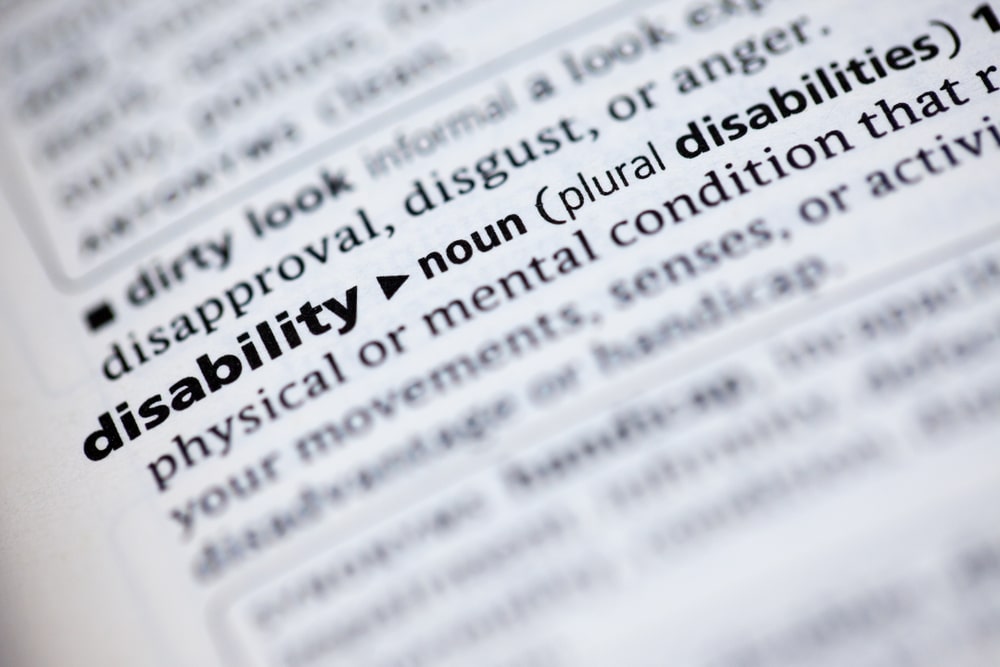
Under the Equality Act 2010, if you have a physical or mental impairment which has substantial and long term negative effects on your ability to perform normal daily functions, you can be considered disabled.
What does ‘substantial’ and ‘long-term’ mean
-
- ‘substantial’ means more than minor, for example, it may take much longer for a person with substantial disability to get dressed as compared to others.
- Long term impairment means for a year or more, for example a breathing condition that develops as a result of lung infection. For conditions that may be long term but fluctuate, like arthritis, there are special rules that can be considered.
Progressive conditions
A progressive condition is a condition that gets worse over time and people with such a condition can be classified as disabled.
Having said that, you automatically meet the definition of disability under the Equality Act 2010 if you are diagnosed with conditions like HIV, cancer or multiple sclerosis.
You are also considered disabled if you suffer from:
1. Severe disfigurement – which does not include tattoos and piercings
2. If you are certified as blind, sight impaired or partially sighted by a certified ophthalmologist.
If you are suffering from one of these conditions and face discrimination at work or anywhere in the society, you can make a claim for unlawful discrimination.
For example, here are some conditions which might be treated as a disability as per the Equality Act:
-
-
- Problems with hearing or sight;
- A condition where the effect of impairment varies over time or comes in episodes like rheumatoid arthritis, fibromyalgia and osteoarthritis;
- Progressive conditions such as motor neurone diseases, muscular dystrophy and certain forms of dementia;
- Conditions affecting organs of your body, such as heart disease, asthma and strokes;
- Learning disabilities;Difficulties in learning such as dyslexia and dyspraxia;
- Autistic spectrum disorders;
- Mental health conditions such as depression, bipolar affective disordereating disorder, obsessive compulsive disorder, schizophrenia etc;
- Physical impairments due to injury to brain or body.
-
If you feel you have experienced discrimination based on any of these conditions and you wish to make a claim, you will have to prove you will need to show the employment tribunal that you have a disability which meets the definition in the Equality Act 2010.
Conditions which don’t count as a disability under the Equality Act
There are certain conditions which do not count as a disability under the Equality Act irrespective of their impact on your daily life.
These are:
-
-
- A tendency to steal;
- A tendency to start a fire;
- A tendency to physically or sexually abuse someone;
- Exhibitionism or voyeurism;
- Hay fever –unless it has aggravated into another condition that can be deemed as a disability.
-
If you’re addicted to drugs or alcohol
In case you are addicted to non-prescribed drugs of any form like alcohol or nicotine, it is not counted as a disability under the Equality Act 2010. But a condition caused by your condition or linked to it may deem you as disabled like depression or a liver disease.
Discrimination because of a past disability
It is not lawful to discriminate you just because of a condition you have had in the past which counted as disability under the Equality Act.
If you think you have been treated differently because you suffer from a physical or mental condition our Employment Law Solicitors can assist with all types of claims. Naturally, we pride ourselves on providing the best possible service to the highest standards, we can provide free employment law advice on all problems.
Call us on 020 3923 4777 or 020 3923 4777
Tom Street qualified as a solicitor in 2003 and has over 20 years experience in employment and litigation law. He studied law at the University of Manchester before undertaking the legal practice course at the College of Law in Guildford, going on to complete his legal training at a firm in Chancery Lane, London. Once fully qualified, he moved to a niche litigation practice in the City of London.
In 2010, Tom set up his own legal practice, Tom Street & Co Solicitors and as part of this, in accordance with his strongly held objective to provide everyone with an easy pathway to justice he established the online portals Do I Have A Case? and Tribunal Claim. These websites are trading names of Tom Street & Co Solicitors.

